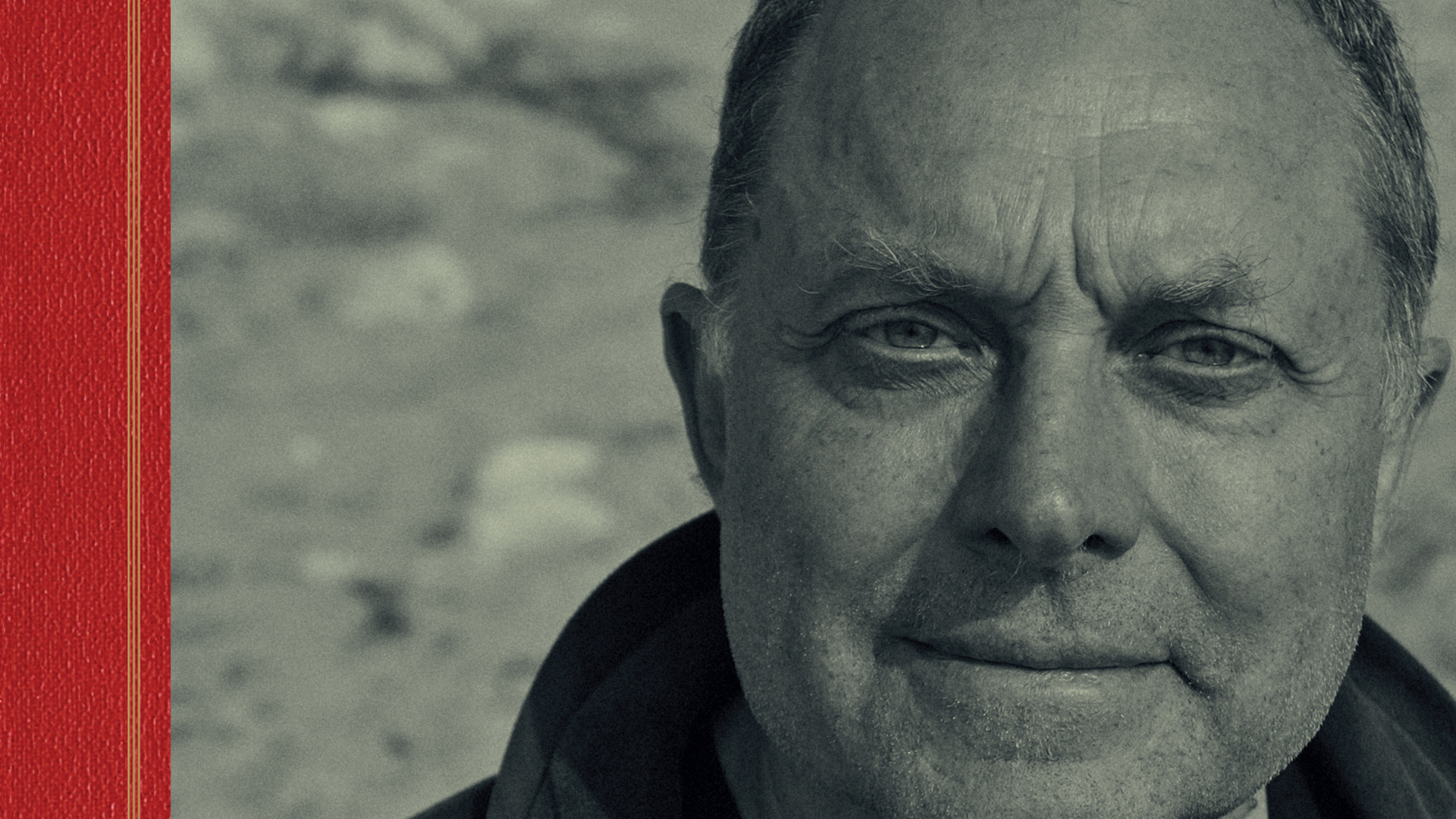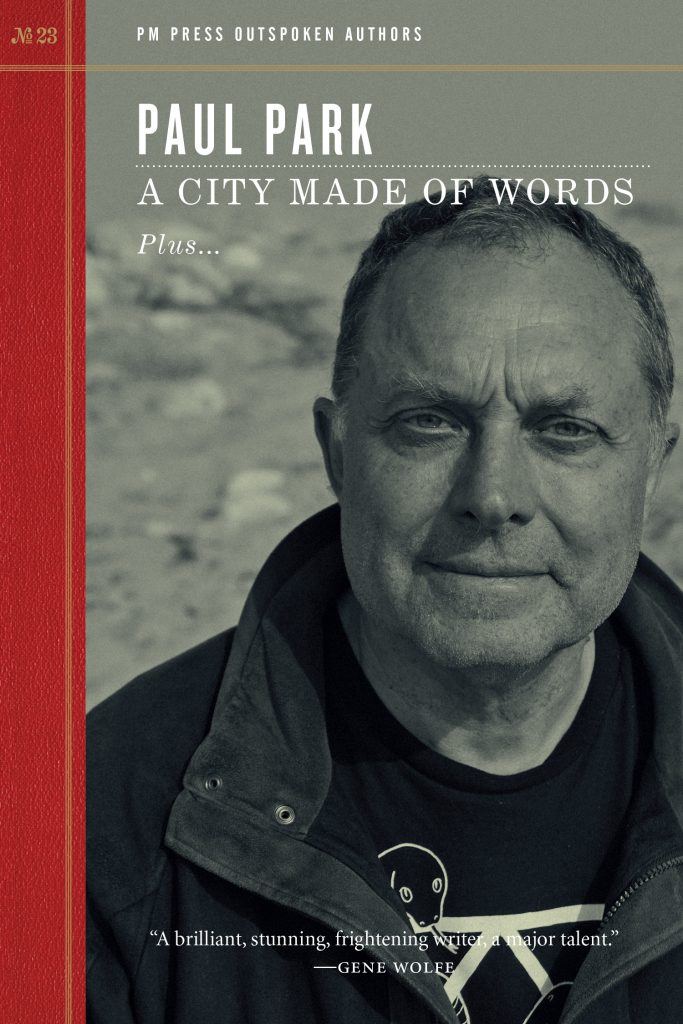By Gary K. Wolfe
Locus
September 26th, 2019
Paul Park has always had a rather sidewise relationship with science fiction and fantasy. His early novels demonstrated a sophisticated awareness of the literary possibilities of the far-future, dying-Earth theme, and his vastly underappreciated A Princess of Roumania series was as carefully worked-out an alternate history as you could ask for – except that it also introduced a dizzying metafictional overlay that basically presented our entire world as the invention of someone else’s book. That ongoing negotiation between the textual and the real has probably been most noticeable in his short fiction, which would sometimes even feature a character named Paul Park, and by the time we got to the three-novella novel All Those Vanished Engines just five years ago, Park was cheerfully incorporating bits of his own family history, and even his own work writing actual museum exhibits, into a multilayered narrative that also featured superweapons, clones, aliens, giant insects, pandemics, mysterious spacecraft, and a rather sad dystopia. This qualifies him as a distinguished member of the “what’s he up to next?” club, and we have something of an answer with A City Made of Words, the most recent of PM Press’s excellent series of chapbooks edited by Terry Bisson (another member of that same club). It features six stories, two of them original to the collection, along with an actual homily delivered in his local church and, as usual, a characteristically quirky interview with Bisson.
It might be worth noting that only one of the four reprinted stories comes from a traditional SF publication (“Creative Nonfiction” appeared in Asimov’s), but that two are from Conjunctions, the literary journal edited by Bradford Morrow, which has been unusually welcoming to authors such as Park, Jeffrey Ford, John Crowley, Elizabeth Hand, Peter Straub, and others comfortable in the borderlands. One of those stories, “A Resistance to Critical Theory”, is a good example of how rewarding and how problematical those borderlands can be. On the one hand, it can be read as the sort of literalization of metaphor that’s sometimes viewed as SF property, but the metaphors in this case come from postmodern literary theory, which Park parodies with perhaps a tad too much glee (“It wasn’t so easy, distinguishing the post-anthropologic from the predeceased”). His central character Yvette, a graduate student whose thesis adviser has recently committed suicide, sets out to sabotage a trendy professor at a lecture – and perhaps to commit murder. While the tale works its way toward a rather graphic horror story denouement (with a comic fillip at the end), getting there involves follow ing some abstruse arguments apparently derived from the actual theories of Julia Kristeva, Donna Haraway, and others, and having some awareness of the controversies surrounding the WWII activities and anti-Semitic writings of deconstructionist guru Paul de Man. Without revealing too much, it’s safe to say that the idea of the posthuman gains a rather blunt literalized meaning.
The academic setting recurs in “Creative Nonfiction”, the Asimov’s story, and in “A Conversation with the Author” (which, to avoid confusion, is a story title and not the title of Bisson’s interview with Park; Park seems to enjoy story titles that don’t sound like fiction at all). In “Creative Nonfiction”, which carries a few echoes of David Mamet’s play Oleanna, a part-time college teacher is having trouble with an ambitious and attractive young student upset that he’s only given her a B on a “creative nonfiction” assignment that begins increasingly to interpenetrate his actual relationship with her, in a world that seems to be growing ominously apocalyptic. “A Conversation with the Author” at first appears to be a traditional author interview, focusing on questions of teaching writing, but quickly takes an ominous turn when we learn that the interrogation is taking place in a bare room over a metal table, that the author has been “brought in for questioning,” and that his arms are strapped down in a wheelchair: it’s a critique of creative writing programs oddly crossed with Guantanamo-like interrogation.
Two stories touch upon, if not SF directly, what might be called the folklorization of SF ideas. “Blind Spot” is at heart a rather touching story of an older and younger man sharing a bedroom, but the older man seems obsessed with explaining his notion of reptilian aliens from the twelfth planet who have long influenced human affairs (the particular mythology is drawn from Zachariah Sitchin’s crackpot series of ancient astronaut books, which are still around). The narrator of “A Short History of Science Fiction, or the Microsopic Eye” meets an aging, blind match-seller whom he recognizes as John Palmer, who as a boy had gained fame for extreme farsightedness back in 1876, claiming to see details on the moon and cities on Mars, but who has suffered an ironic fate in his later years. The most compelling original story here, though, is “Climate Change”, in which a 70-year-old retired travel writer receives an invitation from a former lover to meet her on a remote Melanesian island where they spent time decades earlier, even though the island may now be partially submerged by rising oceans. The balance between his contemporary conversations with his quite reasonably concerned wife and his not entirely reliable memories of that ancient assignation are handled with a delicate assurance and grace which reminds us that, while Park can deploy SF and fantasy notions in unexpected ways, he doesn’t really need them at all.
Gary K. Wolfe is Emeritus Professor of Humanities at Roosevelt University and a reviewer for Locus magazine since 1991. His reviews have been collected in Soundings (BSFA Award 2006; Hugo nominee), Bearings (Hugo nominee 2011), and Sightings (2011), and his Evaporating Genres: Essays on Fantastic Literature (Wesleyan) received the Locus Award in 2012. Earlier books include The Known and the Unknown: The Iconography of Science Fiction (Eaton Award, 1981), Harlan Ellison: The Edge of Forever (with Ellen Weil, 2002), and David Lindsay (1982). For the Library of America, he edited American Science Fiction: Nine Classic Novels of the 1950s in 2012, with a similar set for the 1960s forthcoming. He has received the Pilgrim Award from the Science Fiction Research Association, the Distinguished Scholarship Award from the International Association for the Fantastic in the Arts, and a Special World Fantasy Award for criticism. His 24-lecture series How Great Science Fiction Works appeared from The Great Courses in 2016. He has received six Hugo nominations, two for his reviews collections and four for The Coode Street Podcast, which he has co-hosted with Jonathan Strahan for more than 300 episodes. He lives in Chicago.
Back to Paul Park’s Author Page







